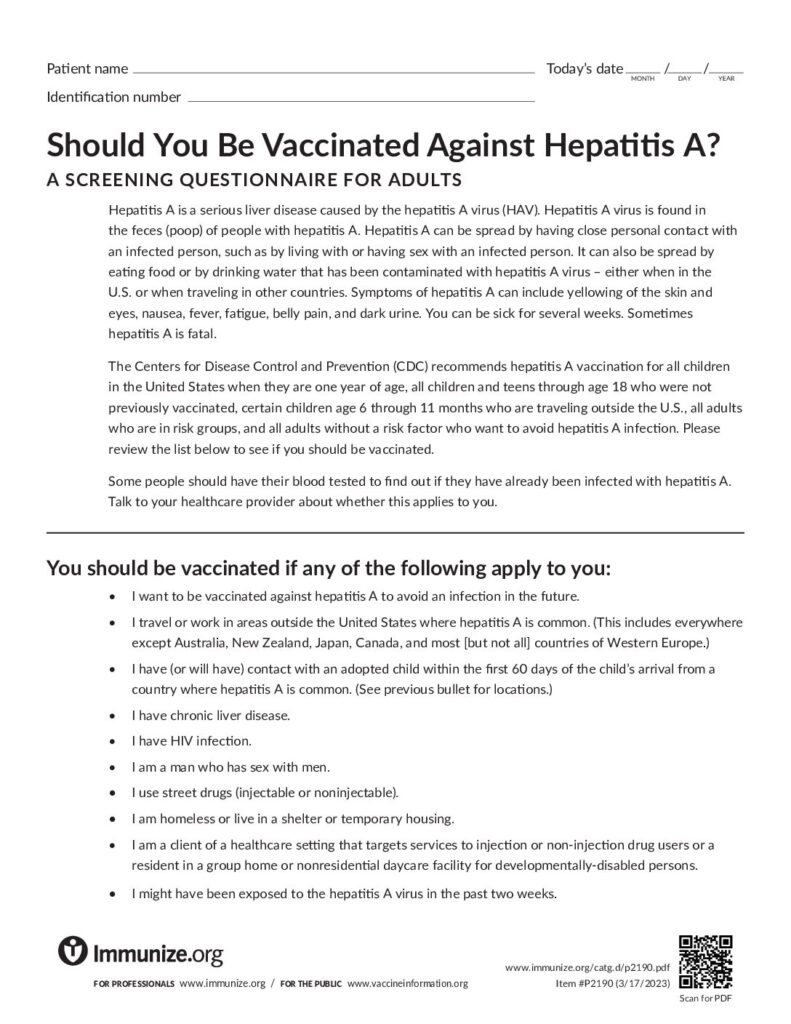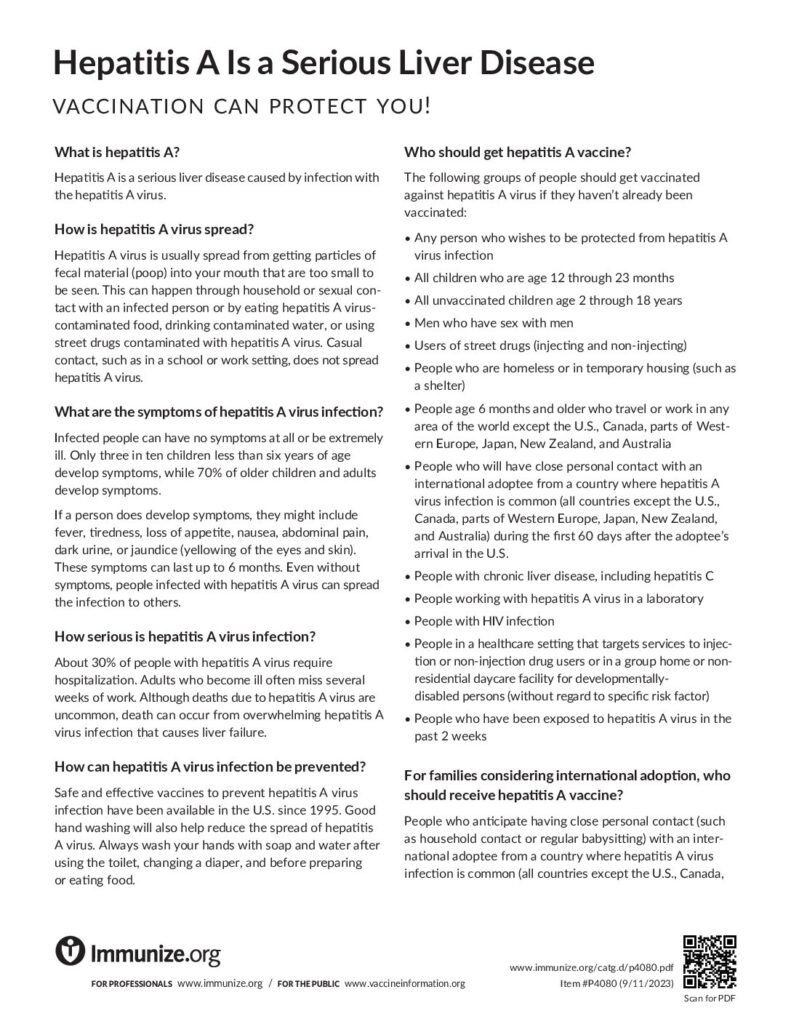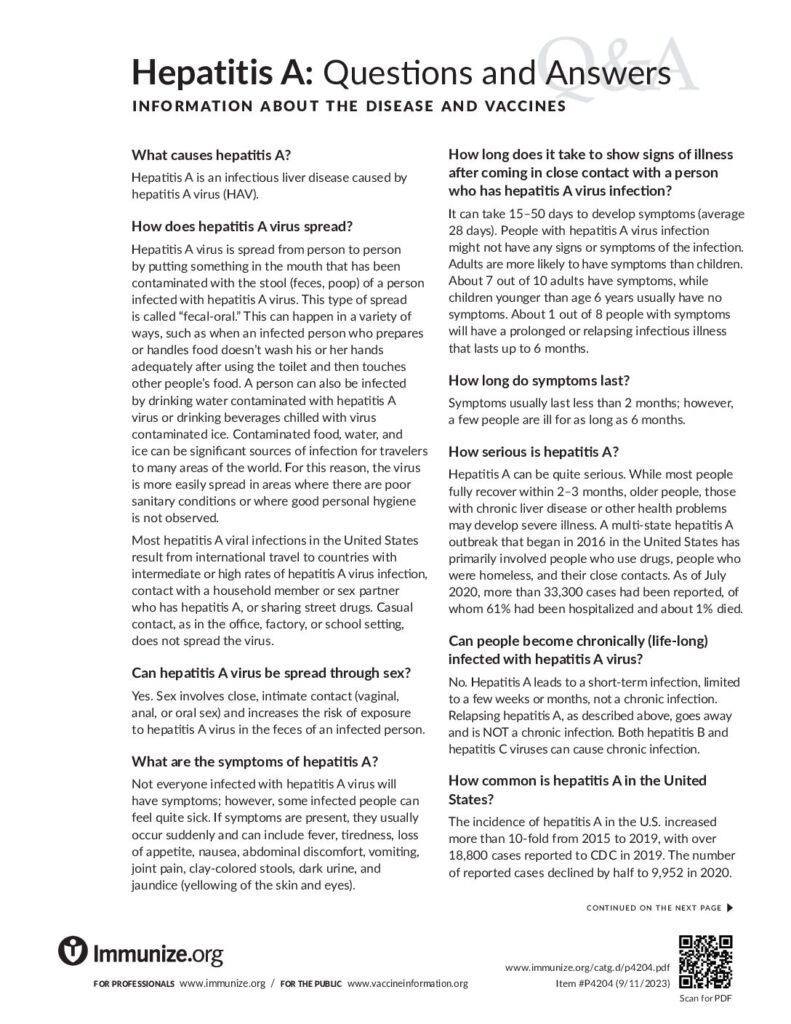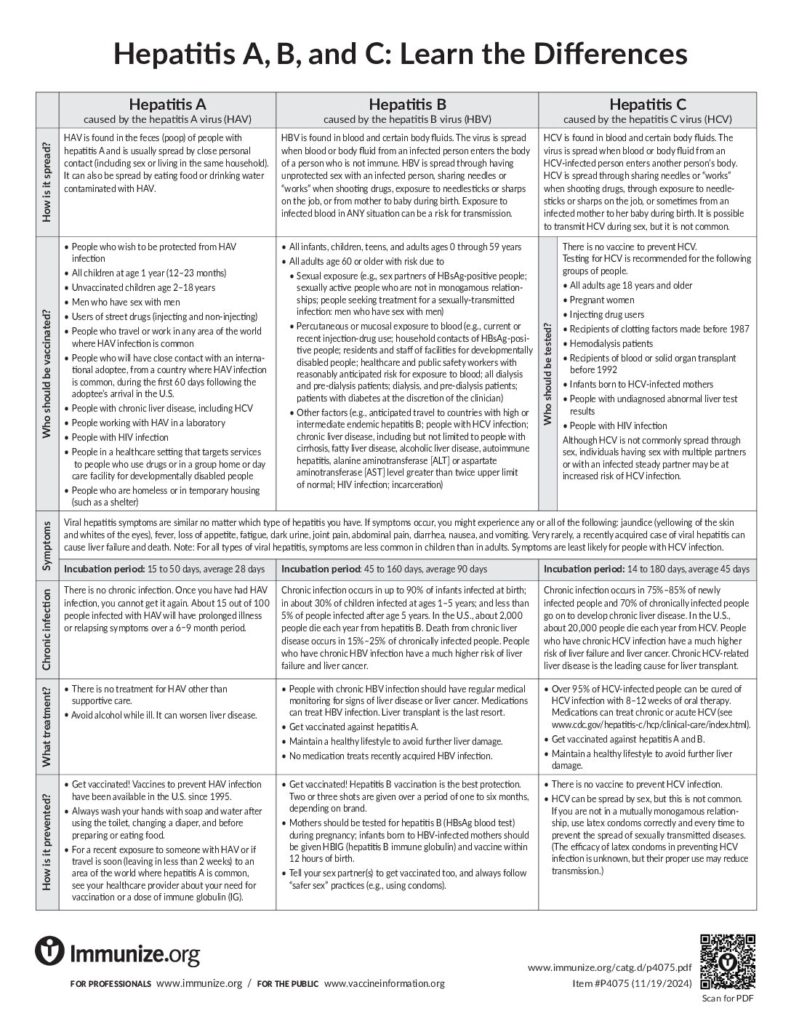Overview
- Hepatitis A is a serious liver disease caused by a virus. The virus is found in the feces (poop) of infected people.
- The hepatitis A virus is spread when invisible particles of feces (poop) get into your mouth. You can get hepatitis A by eating contaminated food or water, during sex, or just by living with an infected person.
- If you get infected with hepatitis A, your skin and eyes can turn yellow because of liver damage. You can get very sick for weeks and may need to be hospitalized. Some people don’t feel sick, but they can still spread the virus to others.
- You are more likely to be infected with the virus if you travel or work outside the U.S., use recreational drugs, have sex with an infected person, do not have stable housing, or if you care for an unvaccinated child recently arrived from a country where hepatitis A is common.
- You are more likely to have severe illness or to die if you have chronic liver disease or HIV infection.
- Vaccination is the best way to prevent hepatitis A.
- International Travel: Unvaccinated people going to parts of the world where hepatitis A is common should be vaccinated before travel. The first dose of vaccine protects the traveler, even if administered as little as two weeks before departure. The second dose provides long term, probably lifelong, protection from illness.
Hepatitis A Vaccine Schedule
Two doses of the hepatitis A vaccine are recommended for all children beginning at age 12 months. The two doses should be separated by at least 6 months. Children and adolescents through 18 years old who have not previously been vaccinated should be vaccinated routinely at any age. If you didn’t get the vaccine as a child, you should get vaccinated now if you are in a group at risk for hepatitis A, or just if you want to be protected.
RESOURCES
Should You Be Vaccinated Against Hepatitis A?
A checklist of reasons for getting the hepatitis A vaccine, from Immunize.org.
Hepatitis A Is a Serious Liver Disease
A fact sheet and Q&A for hepatitis A, from Immunize.org.
Hepatitis A: Questions and Answers
Hepatitis A disease and vaccine information, from Immunize.org
Hepatitis A, B, and C: Learn the Differences
Information on symptoms, risk factors, prevention, treatment, and more, from Immunize.org.
Partner Resources
General

Fact sheets, resources, multimedia, and more for parents and children from the Centers for Disease Control and Prevention.

Questions and answers about hepatitis A and vaccines from the Vaccine Education Center at the Children’s Hospital of Philadelphia.

Basic information about hepatitis A from the American Academy of Pediatrics.
Information about hepatitis A vaccine and the importance of vaccinating children.
Travel

Access the hepatitis A chapter of the CDC Yellow Book for travel-associated infections and diseases. This resource is intended for healthcare professionals, but its information is also useful for travelers.

Information for travelers about vaccines they may need, including hepatitis A.
Tom
A traveling filmmaker reflects on the high cost of hepatitis A virus infection.
Read more.Allison Jester
High school student Allison Jester describes how a hepatitis A infection disrupted her senior year.
Read more.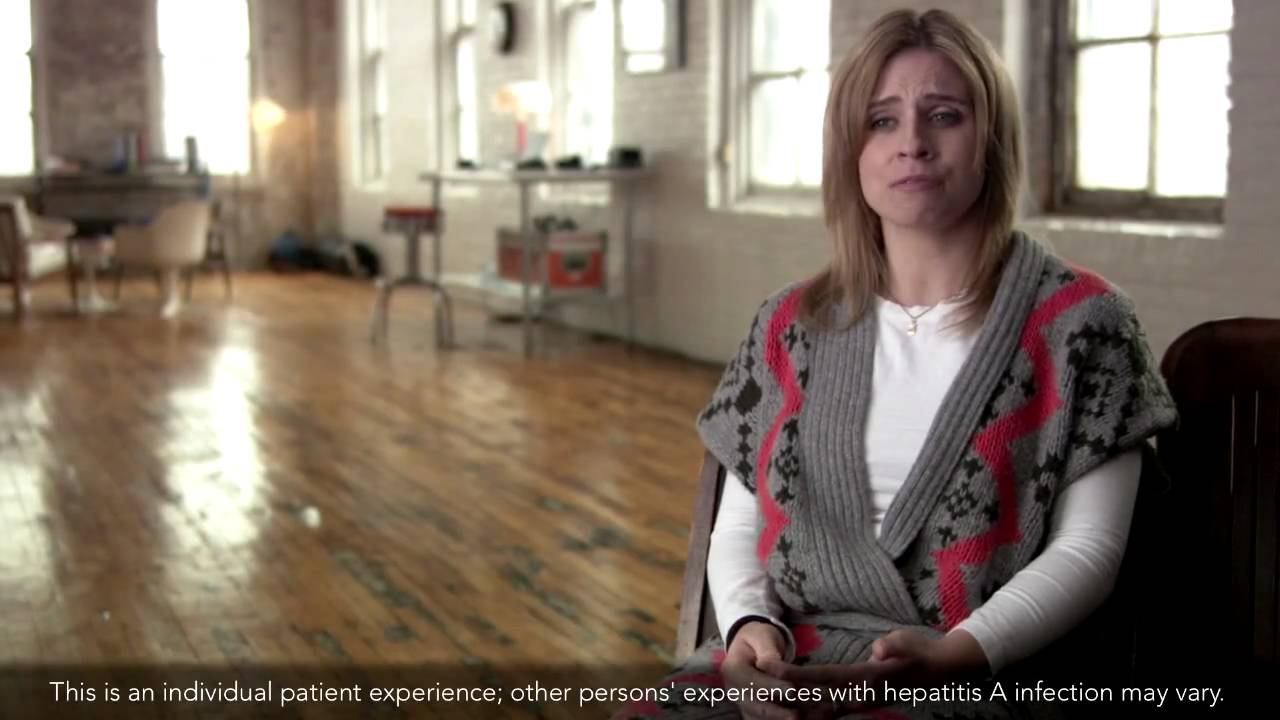
Jill’s Experience with Hepatitis A
Jill is like many other adults who gave little or no thought to the risks of hepatitis A or hepatitis B. Then she became sick. Jill contracted hepatitis A virus from a source she cannot identify. But what she does know for certain is how complicated her life became as a result of becoming infected with hepatitis A virus.
People of any age can feel a bit anxious about getting a shot. Some may be so anxious that they avoid vaccination…even when they know it’s important. Learn more about simple ways to help any child or adult feel better and more confident when getting vaccinated.
